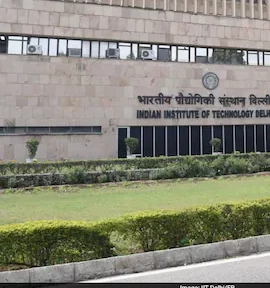The Joint Entrance Examination (JEE) Main is one of the most competitive exams in India, serving as the gateway for admission into premier engineering institutes like NITs, IIITs, and as a qualifying exam for JEE Advanced for IIT aspirants. With lakhs of students appearing every year, preparation for JEE Main 2026 requires smart planning, disciplined execution, and the right resources.
If you are aiming for success in JEE Main 2026, this detailed guide will help you structure your preparation with a well-balanced study plan, a realistic timetable, a list of best books, toppers’ insights, and expert teachers’ notes to enhance your strategy.
Understanding the JEE Main 2026 Exam Pattern
Before diving into preparation, it’s essential to understand the structure of the JEE Main exam. The test is conducted by the National Testing Agency (NTA) in online mode and includes three subjects: Physics, Chemistry, and Mathematics.
- Exam Mode: Computer-based online test
- Total Papers: Paper 1 for B.E./B.Tech aspirants and Paper 2 for B.Arch/B.Planning students
- Duration: 3 hours
- Total Marks: 300 (Physics: 100, Chemistry: 100, Mathematics: 100)
- Question Type: Multiple-choice questions and numerical value-based questions
- Marking Scheme: +4 for every correct answer, -1 for every incorrect answer
Understanding the pattern helps in aligning your study approach and mock test strategy.
Step-by-Step Study Plan for JEE Main 2026
A well-organized study plan ensures consistent progress across all three subjects. Since JEE Main covers the entire syllabus of Classes 11 and 12, planning should be long-term and systematic.
1. Break the Syllabus into Manageable Segments:
Divide the entire syllabus into smaller weekly and monthly targets. For instance, dedicate the first three months to mastering Class 11 basics before moving to Class 12 concepts.
2. Focus on Conceptual Clarity:
Instead of rote learning, focus on understanding the logic behind formulas and concepts. JEE questions are designed to test your application skills, not memorization.
3. Daily Routine:
Allocate 8 to 10 hours of effective study daily. Divide time between the three subjects, keeping your weaker topics in focus.
- Morning: Revise Physics formulas and problem-solving
- Afternoon: Practice Mathematics problems and mock tests
- Evening: Revise Chemistry reactions and conceptual questions
4. Regular Revision:
Dedicate at least one day every week to revision. Reviewing older topics ensures you retain information for the long term.
Perfect Time Table for JEE Main 2026 Preparation
Here’s a suggested timetable for aspirants who have about 12 months for preparation:
| Time | Activity |
|---|---|
| 6:00 AM – 6:30 AM | Wake up and light exercise |
| 6:30 AM – 8:30 AM | Physics study session (concepts + numerical) |
| 8:30 AM – 9:30 AM | Breakfast and short break |
| 9:30 AM – 12:00 PM | Mathematics practice |
| 12:00 PM – 1:00 PM | Lunch and relaxation |
| 1:00 PM – 3:00 PM | Chemistry theory + NCERT reading |
| 3:00 PM – 4:00 PM | Rest or light activity |
| 4:00 PM – 6:30 PM | Solve mixed mock test or previous papers |
| 6:30 PM – 7:30 PM | Evening walk/dinner |
| 7:30 PM – 9:30 PM | Revision or weaker topic focus |
| 9:30 PM – 10:30 PM | Relaxation/Reading motivational material |
| 10:30 PM | Sleep |
Consistency in following this timetable will build strong discipline and time management skills.
Subject-Wise Strategy
Physics:
Physics is often considered the toughest section due to its conceptual depth. Focus on understanding fundamental laws and applying them through numerical problems.
- Key Topics: Mechanics, Thermodynamics, Electromagnetism, Modern Physics, Optics.
- Practice numerical problems daily and revise derivations regularly.
Chemistry:
Chemistry can be your scoring subject if approached strategically. Divide it into three parts – Physical, Organic, and Inorganic Chemistry.
- Physical Chemistry: Practice numerical problems regularly.
- Organic Chemistry: Focus on reaction mechanisms and conversions.
- Inorganic Chemistry: Revise NCERT thoroughly, as most questions are directly from it.
Mathematics:
Mathematics requires a blend of conceptual clarity and speed. Practice is the key here.
- Key Topics: Algebra, Calculus, Coordinate Geometry, Probability, Trigonometry.
- Regular problem-solving builds confidence and improves accuracy.
Best Books for JEE Main 2026
Choosing the right books ensures you cover the syllabus comprehensively. Here’s a list of trusted resources:
Physics:
- Concepts of Physics (Vol 1 & 2) by H.C. Verma
- Problems in General Physics by I.E. Irodov
- NCERT Physics (Class 11 & 12)
Chemistry:
- NCERT Chemistry (Class 11 & 12)
- Organic Chemistry by O.P. Tandon
- Physical Chemistry by P. Bahadur
- Inorganic Chemistry by J.D. Lee
Mathematics:
- Mathematics for Class 11 & 12 by R.D. Sharma
- Objective Mathematics by R.D. Sharma
- Problems in Calculus by I.A. Maron
- Coordinate Geometry by S.L. Loney
Notes and Insights from Teachers
Teachers often emphasize the importance of personalized notes. Writing your own summaries while studying helps in better retention and quick revision before exams.
Expert teachers recommend focusing on:
- Formula sheets for quick recall
- Flashcards for organic reactions
- Error analysis after every mock test
- Consistent revision of older topics
Toppers’ Guide for JEE Main 2026
Every year, JEE toppers share their strategies which can help aspirants refine their preparation. Here are some common success habits among toppers:
- Start Early: Begin preparation at least one year before the exam.
- Target Accuracy Over Speed: Focus on solving questions correctly first, speed will follow naturally.
- Mock Tests: Attempt full-length mock tests every week to simulate real exam conditions.
- Balanced Routine: Avoid burnout by taking regular short breaks and ensuring proper sleep.
- Avoid Over-Resources: Stick to limited, quality books rather than switching frequently.
Smart Study Tips
- Create short handwritten notes for revision.
- Highlight difficult topics and revisit them regularly.
- Maintain a separate notebook for mistakes in mock tests and revise them weekly.
- Practice at least one mixed subject test daily to strengthen time management.
- Take guidance from mentors or coaching teachers regularly.
How to Stay Motivated
Preparing for JEE can be mentally exhausting. Keeping yourself motivated throughout the year is crucial.
- Set weekly goals and reward yourself after achieving them.
- Stay connected with fellow aspirants for healthy competition.
- Follow inspirational stories of JEE toppers.
- Practice meditation or sports to stay stress-free.
Common Mistakes to Avoid
- Ignoring NCERT: Many students underestimate NCERT, but it forms the foundation for Chemistry and Physics basics.
- Overloading with reference books: Focus on conceptual understanding rather than quantity.
- Skipping mock tests: Regular testing is essential for self-evaluation.
- Lack of revision: Without consistent revision, you may forget even well-learned topics.
Conclusion
JEE Main 2026 preparation demands a blend of hard work, consistency, and the right approach. With a proper study plan, realistic timetable, and reliable resources, success becomes achievable. Remember, every topper once started as a beginner the difference lies in disciplined preparation and self-belief.
If you stay consistent, follow expert guidance, and remain confident throughout your journey, JEE Main 2026 could be your stepping stone to one of India’s top engineering institutes. Start early, stay focused, and make each day count. Your success story begins now.


![DC Pandey Physics PDF Free Download [2024-25] 3 DC Pandey Physics PDF Free Download [2023-24]](https://www.cbsemeterials.com/wp-content/uploads/2023/08/Democracy-and-Diversity-Chapter-3-Notes.png)
